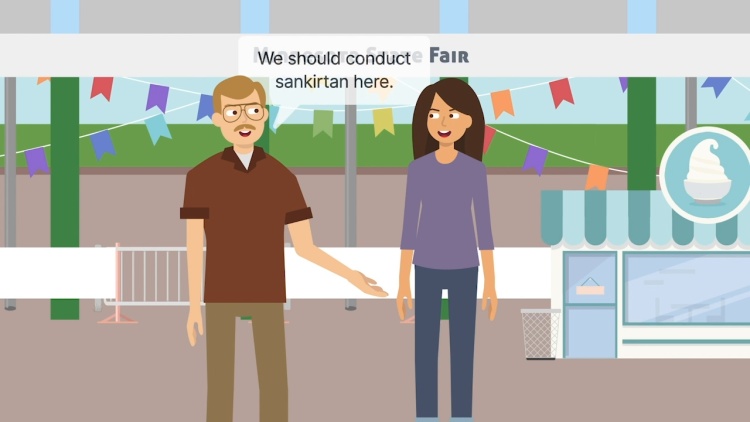Heffron v. International Society for Krishna Consciousness, Inc.
United States Supreme Court
452 U.S. 640 (1981)
- Written by Rose VanHofwegen, JD
Facts
The International Society for Krishna Consciousness, Inc. (ISKCON) (plaintiff) sought to freely distribute literature and solicit funds at the 1977 Minnesota State Fair without renting a booth. Rules established by the Minnesota State Agricultural Society Board of Managers (defendant) allowed anyone to walk around the fair talking or proselytizing to people freely, but handing out literature or soliciting funds required a rented booth. ISKCON argued that the booth rule violated its First Amendment freedoms of speech and religion. Specifically, ISKCON argued that the rule suppressed the practice of Sankirtan, a religious ritual requiring ISKCON members to distribute or sell religious literature and solicit donations in public places. The trial court upheld the booth rule as constitutional based on the state’s interest in providing everyone equal access and preventing congestion on the fairgrounds. On appeal, the Minnesota Supreme Court reversed, reasoning that the booth rule infringed ISKCON’s right to practice Sankirtan and that a less restrictive rule granting ISKCON an exemption would protect the state’s interests. The Minnesota fair officials appealed to the United States Supreme Court.
Rule of Law
Issue
Holding and Reasoning (White, J.)
Concurrence/Dissent (Brennan, J.)
Concurrence/Dissent (Blackmun, J.)
What to do next…
Here's why 907,000 law students have relied on our case briefs:
- Written by law professors and practitioners, not other law students. 47,100 briefs, keyed to 996 casebooks. Top-notch customer support.
- The right amount of information, includes the facts, issues, rule of law, holding and reasoning, and any concurrences and dissents.
- Access in your classes, works on your mobile and tablet. Massive library of related video lessons and high quality multiple-choice questions.
- Easy to use, uniform format for every case brief. Written in plain English, not in legalese. Our briefs summarize and simplify; they don’t just repeat the court’s language.





